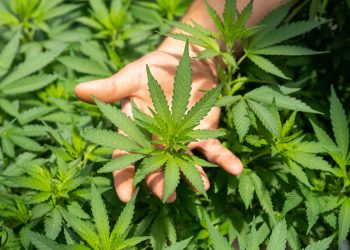Magic mushrooms, also known as psilocybin mushrooms, are fungi with psychoactive compounds. Its main compound, psilocybin, produces hallucinogenic and euphoric effects.
Much like most psychedelics, it rose to fame during the 70s. Popular media would often depict it as a getaway drug alongside LSD. Its use is often associated with bright, intense, swirling flashes that make up the psychedelic art of that decade.
Facts About Magic Mushrooms
Contents
Its scientific name, Psilocybe cubensis or P. cubensis, means “bald head”. This is a suitable name because of its fat and round heads. Its bulbous figure oftentimes resembles an umbrella.
It is consumed in several ways. It can be crushed into powder, and later on, used for capsules and tablets. Others prefer boiling it to make tea. Some people also prefer smoking it!
Records show its religious and spiritual significance in indigenous people’s cultures. Long before its recreational use, it is utilized in religious rituals by tribes across America and Europe. It played such a significant role in their culture that they would often create statutes and honoring it. A fitting backstory, as the hallucinations it creates is described as a ‘spiritual experience’.
It has gained notoriety in the field of medical research. Its psychedelic effects seem to have a positive and soothing effect on one’s mind. Studies go beyond describing it as a mere psychedelic ride – it has a lot of underrated health benefits that piqued the interest of many researchers.
Health and Psychological Benefits of Magic Mushrooms
1. It Treats Anxiety, Depression, and Other Mental Health Problems
Researches show that psilocybin can relieve mental health problems such as anxiety and depression. Small doses can instruct the brain to produce more serotonin.
This chemical is responsible for making people feel happy, and is thus called the ‘happy chemical’.
Thus, magic mushrooms can have a positive impact on one’s headspace. In the long run, it can leave the person with a positive perspective.
This has been observed in a study with cancer patients. The subjects reportedly had reduced levels of anxiety and distress after taking the psychedelic.
This positive outlook is a result of psilocybin being a natural receptor for serotonin. Consequently, the adjusted moods of these patients make them feel less demoralized.
With that said, there is evidence that magic mushrooms work wonders for our minds. Studies are now looking to use magic mushrooms to treat other mental health concerns. This includes post-traumatic stress disorder (PTSD) and obsessive-compulsive disorder (OCD).
2. It Helps With Treating Addiction
Magic mushrooms also work wonders for people suffering from alcoholism and other forms of addiction. There is strong evidence that it may help people overcome their addiction to nicotine.
As John Hopkins researchers suggest, ‘psilocybin can lead to deep reflection about one’s life and spark motivation to change’.
In their research, the subjects achieved an 80 percent abstinence rate within six months. This is significantly higher than verenicline, a drug used on people who undergo smoking-cessation therapy.
The findings may lead to therapeutic centers shifting to magic mushrooms. Smoking cessation programs may see themselves giving patients small doses of psilocybin.
If paired well with effective counseling, it may lead to a higher recovery rate for subjects.
3. It Heightens Creativity and Problem-solving Skills
Magic mushrooms also lead to improved critical thinking skills. Study shows that the psychedelic mushroom leads to a better consciousness of aesthetics.
exhibited a rise in their ‘openness’, leading to a positive view toward new experiences. Their reformed headspace is associated with increased creativity and imagination.










